Select Language

By Doyinsola Oladipo
NEW YORK (Reuters) - International flight bookings around the world have fallen since the onset of the Israel-Hamas conflict especially in the Americas as people cancel trips to the Middle East and around the world, according to travel analysis firm ForwardKeys.
Global travel demand has weakened since the Palestinian Islamist group Hamas killed 1,400 people in southern Israel on Oct. 7, and Israel responded with air and ground strikes on Gaza that Palestinian authorities say have killed over 10,000 people.
"This war is a catastrophic, heartbreaking, human tragedy that we are all seeing daily on our TV screens," said Olivier Ponti, vice president of insights at ForwardKeys in a statement. "That is bound to put people off (from) traveling to the region, but it has also dented consumer confidence in traveling elsewhere too."
International flight bookings from the Americas dropped 10% in the three weeks after the Oct. 7th attack, when compared to the number of tickets issued three weeks before the attack, according to flight ticketing data from ForwardKeys.
People in the Middle East have also been traveling less with international flight tickets issued in the region having fallen 9% in the same period. International flight bookings to travel to the region plummeted 26% in the three weeks following the attack.
International flight bookings fell 5% across regions on average, impacting the global rebound in international travel from the pandemic.
Bookings one day before that attack showed that global air travel in the last quarter of the year would recover 95% of 2019 levels, but as of late October the outlook has fallen back to 88%, Ponti said.
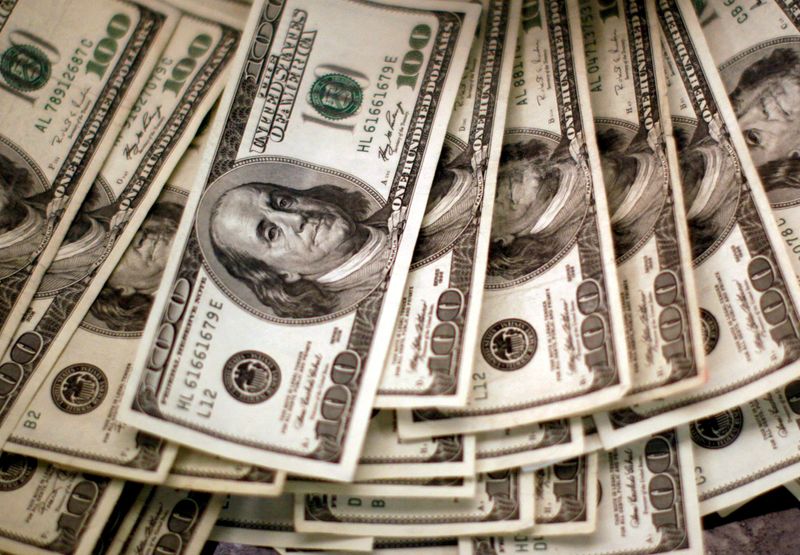
By Rae Wee
SINGAPORE (Reuters) - The dollar was headed for its best week against the yen in three months on Friday, after Federal Reserve Chair Jerome Powell and a chorus of Fed officials poured cold water on market expectations of a peak in U.S. rates.
In cryptocurrencies, bitcoin and ether held near multi-month highs, with renewed speculation over the imminent approval of an exchange-traded bitcoin fund breathing new life into the digital assets.
A slew of Fed policymakers including Powell on Thursday said they are still not sure that interest rates are high enough to finish the battle with inflation, comments taken as hawkish by markets and which sent the greenback rising.
The dollar stood near a one-year high at 151.38 yen on Friday and touched one-week highs against the Australian and New Zealand dollars.
"Powell's speech was quite hawkish, and that just really hit sentiment," said Tina Teng, market analyst at CMC Markets (LON:CMCX).
The remarks from Fed officials came a week after the U.S. central bank left interest rates steady and cemented expectations that rates could have peaked, causing the dollar and Treasury yields to tumble in the aftermath.
The greenback, however, regained its footing this week and was eyeing a weekly gain of roughly 1.3% against the yen, its best performance since August.
"Dollar/yen did trend higher this week and it's now back above 151. It does raise the risk of the BOJ stepping into the (forex) market to strengthen the yen, but I think markets are expecting no intervention unless dollar/yen moves to about 152," said Carol Kong, a currency strategist at Commonwealth Bank of Australia (OTC:CMWAY).
The Aussie and the kiwi were likewise headed for a 2.4% and 1.8% weekly decline against the dollar respectively, also their steepest drop in months.
"Even though we don't expect Powell to deliver on the tightening bias, that tightening bias does support the dollar," said Kong.
The Australian dollar last stood at $0.6359 after slipping to a one-week low of $0.6352 earlier in the session, while the New Zealand dollar was last at $0.5893, having similarly hit a one-week trough of $0.5886 earlier.
Falling oil prices and a faltering economic recovery in China have also kept a lid on the Antipodean currencies.
Australia's central bank, in its quarterly Statement on Monetary Policy released on Friday, warned there were risks of further upside surprises to inflation following its latest hike in interest rates, while also raising forecasts for economic growth and employment.
Elsewhere, the euro steadied at $1.0668, while sterling slipped 0.02% to $1.2218. They were both on track to lose 0.56% and 1.3% for the week, respectively.
Bitcoin, the world's largest cryptocurrency, meanwhile held near an 18-month high and last bought $36,519, having peaked at $37,978 in the previous session, its highest level since May 2022.
The second-largest cryptocurrency Ether last stood at $2,102.90, after similarly jumping to its highest since April of $2,131.50 in the previous session.
Prices of the digital assets have surged on swirling speculation of an imminent approval of BlackRock (NYSE:BLK)'s spot bitcoin ETF, with the asset management giant also having registered to create an ethereum trust.
"The potential approval of spot ETFs by the (U.S. Securities and Exchange Commission) could significantly impact the cryptocurrency sector," said Carl Szantyr, managing partner of digital asset hedge fund Blockstone Capital.
"Such an endorsement would make it more accessible for institutional investors to enter the crypto space, likely boosting demand and subsequently, prices."
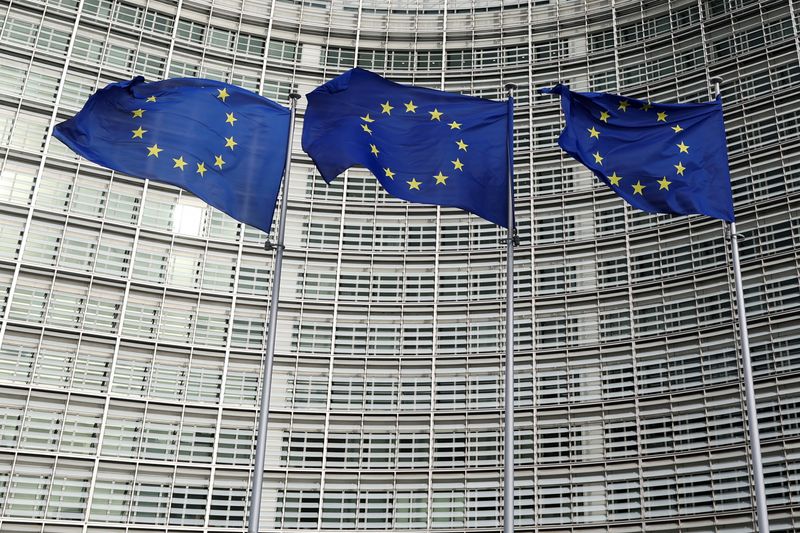
By Huw Jones
LONDON (Reuters) - Regulators should keep on open mind when writing rules for the world's $239 trillion "non-bank" financial sector to avoid one-size fits all approaches, the EU's top securities watchdog said.
Non-banks, a sector which includes hedge funds, real estate funds, insurers and private investments and now account for about half of the world's financial sector, are firmly in the regulatory limelight.
This follows redemption-related stresses among money market funds (MMFs) during a "dash for cash" when economies went into pandemic lockdowns in March 2020, and last year with liability-driven investment (LDI) funds in Britain.
European Securities and Markets Authority (ESMA) chair Verena Ross said regulators are closely examining non-banks' leverage, liquidity and their connectivity with banks.
"We must not equate non-banks with investment funds, it's important to keep an open mind," Ross told Reuters on Thursday, adding: "Each sector must be looked at quite specifically."
Pressure for action rose after the U.S. Federal Reserve had to inject liquidity into markets to help MMFs in March 2020. The Bank of England then had to intervene after LDI funds struggled to meet collateral calls in 2022.
The U.S. Financial Stability Oversight Council(FSOC) this month published a framework for analysing risks in non-banks.
Meanwhile, the BoE has called for tougher liquidity rules for MMFs, but sterling-denominated funds are listed in European Union countries such as Ireland and Luxembourg, where the rules are written by the 27-member bloc.
MMFs come under UCITS or AIFMD rules, recently updated to bolster resilience, Ross said.
There are also separate bespoke EU rules for the sector
"MMFs have been identified as one area there is clearly a need to act, but that need to wait for the next Commission. We still believe it's important to pick that up, " Ross said.
Although ESMA has already recommended changes to MMFs to bolster their resilience in stressed markets, a new European Commission will not be in place until next autumn, meaning reform is unlikely before 2025.

Ukraine and the International Bank for Reconstruction and Development (IBRD) solidified a $550 million agreement to support the nation's agricultural sector, which has been significantly impacted by the ongoing conflict with Russia. The funding is part of the ARISE project, initiated in October 2023, and aims to provide financial aid to over 90,000 farmers.
The World Bank forecasts a 3.5% economic growth for Ukraine following a severe slump in 2022 due to the war. This new accord aims to mitigate the financial strain and ensure continuous financing for agricultural enterprises despite the aggressive war that caused significant agricultural losses.
The finance package consists of a $230 million loan from the ADVANCE Ukraine Trust Fund, backed by Japan, and a $320 million grant from URTF. It also includes a provision of $500 million earmarked for the Affordable Loans 5%-7%-9% Program for the years 2023-2024. This program is designed to lower borrowing costs for agricultural businesses.
In addition to loans, a $50 million provision is available for grants that these enterprises can access. These funds are expected to enhance financing access for agricultural producers through concessional loans and grants.
Finance Minister Sergii Marchenko underscored the critical importance of this funding due to the war's devastating impact on agriculture and ensuing food nutrition security concerns. Since Russia's full-scale invasion in February 2022, Ukrainian entities have dealt with immense financial strain.
In response to these challenges, Ukrposhta secured a mortgage agreement with the Ministry of Finance to meet €30 million guarantee obligations. Since the onset of hostilities, the World Bank has mobilized over $38 billion for Ukraine, disbursing more than $29 billion by October 30, 2023.
This article was generated with the support of AI and reviewed by an editor. For more information see our T&C.
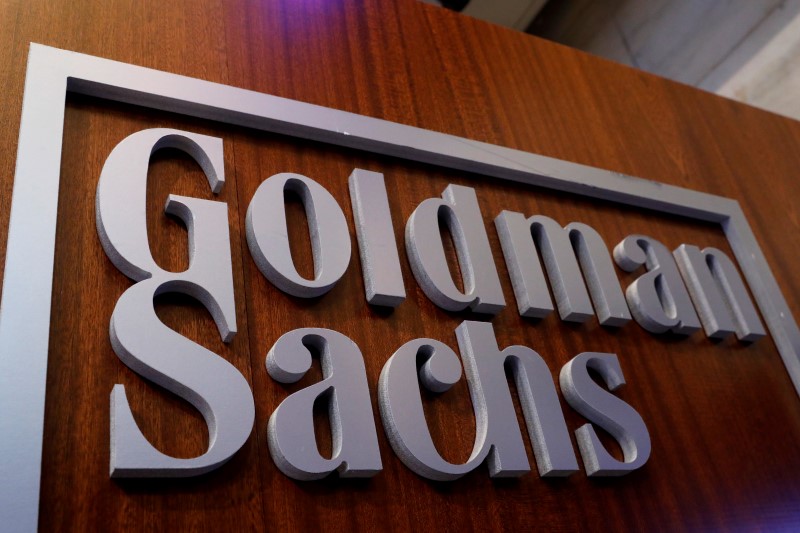
Goldman Sachs's chief economist, Jan Hatzius, dismissed concerns of an impending recession due to the Federal Reserve's successive interest rate increases over the past years in a CNBC interview on Wednesday. This perspective contradicts some Fed officials who foresee enduring "lagged" effects on the economy from these rate adjustments.
Hatzius argued that the most severe negative impacts have already been felt, and the majority of the drag on GDP growth from the Fed's monetary tightening was experienced in 2022 and early 2023. The recent rise in long-term interest rates has extended the economic deceleration for a few more quarters, but Goldman anticipates these influences will soon fade.
Goldman Sachs suggests that the lag between monetary tightening and GDP growth is shorter than commonly assumed, initiating when markets predict tightening. Hatzius maintains a positive outlook on the economy, forecasting that inflation can decrease without causing substantial harm to the economy.
He also predicts continued growth in real disposable household income, which will be beneficial for consumers. With inflation enduring slightly above 2%, Hatzius expects the Fed will abstain from any rate changes until Q4 of 2024.
This article was generated with the support of AI and reviewed by an editor. For more information see our T&C.
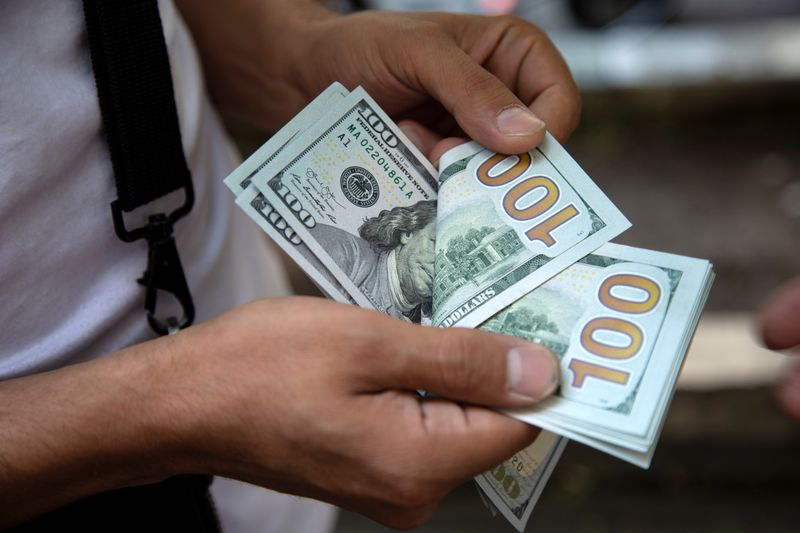
The Bangladeshi Taka continues to depreciate against the US dollar, leading to heightened financial strain for businesses and economic repercussions. Today, the interbank exchange rate stands at Taka 111 per dollar, with some banks collecting remittances at rates up to Taka 117 per dollar, and open market trading at Taka 121 per dollar. This has resulted in increased import costs and difficulties in acquiring foreign currencies.
In an attempt to counteract this trend, on October 22, the Bangladesh Foreign Exchange Dealers Association (BAFEDA) and the Association of Bankers, Bangladesh (ABB (ST:ABB)) permitted a 2.5% higher dollar purchase rate from remitters. However, as the Taka continued to depreciate, these bodies increased the dollar purchase rate from exporters to Tk 110.5 on October 31 and enforced regulatory checks on banks' records.
Despite these measures, allegations of inflated rates and dollar shortages led banking bodies to cap the exchange rate at Tk 115 per US dollar for overseas Bangladeshi workers' transactions on November 7. This was enacted despite previous offers of up to Tk 124.
The current crisis in the foreign exchange market is further exacerbated by a 4.3% year-on-year decrease in remittance inflow to $6.8 billion in July-October 2023-24, despite government incentives for remitters. Over the past 27 months, the central bank's divestment of over US $25 billion from its reserves in an attempt to stabilize the foreign exchange market has not been able to offset a sluggish inflow of remittances and export earnings, leading to a depletion of foreign exchange reserves.
From September 2021 to September 2022, amidst a dollar crisis and disparity in dollar supply and demand, the Taka depreciated from Taka 85.5 per dollar to Taka 96 per dollar. This depreciation escalated debt repayment obligations due to US-denominated foreign debt, leading to further economic repercussions.
This article was generated with the support of AI and reviewed by an editor. For more information see our T&C.
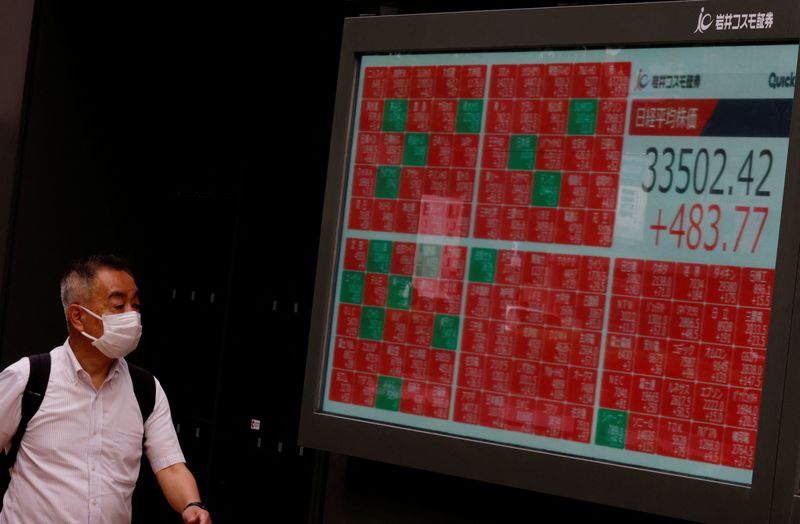
By Scott Murdoch
SYDNEY (Reuters) - Asian share markets rallied on Thursday and the dollar was weaker after most U.S stocks edged higher and the S&P 500 recorded its longest winning streak in two years, with investors on high alert for signs that global interest rates have peaked.
MSCI's broadest index of Asia-Pacific shares outside Japan was flat, although up 4.6% so far this month.
The yield on benchmark 10-year Treasury notes reached 4.5059% compared with a U.S. close of 4.523% on Wednesday.
The two-year yield, which rises with traders' expectations of higher Fed fund rates, touched 4.932% compared with a U.S. close of 4.936%.
Australian shares were up 0.44%, and Japan's Nikkei stock index was up 0.85%.
Hong Kong's Hang Seng Index was up 0.11% in early trade while China's bluechip CSI300 Index was 0.2% higher in early trade.
"Markets were relatively calm following recent volatility as participants await the release of next week's October U.S. CPI report and try to ascertain whether last week's moves in U.S. Treasuries, equities and the dollar are corrective or represent a fundamental shift in direction," ANZ economists wrote.
Chinese inflation figures for October published on Thursday showed a 0.1% decline compared to September and a 0.2% fall from one year, according to official statistics.
China's troubled property sector will be closely watched on Thursday after most major stocks rallied one day earlier following a Reuters report that Ping An Insurance Group had been asked by the Chinese authorities to take a controlling stake in Country Garden Holdings .
A spokesperson for Ping An said the company had not been approached by the government and denied the Reuters report that cited four sources familiar with the plan.
In Asian trading, the dollar dropped 0.06% against the yen to 150.88. It remains not far from its high this year of 151.74 on October 31.
The European single currency was up 0.0% on the day at $1.0709, having gained 1.25% in a month. The dollar index, which tracks the greenback against a basket of currencies of other major trading partners, was down slightly at 105.52.
The dollar has rebounded from last week's sharp sell-off on rising confidence the Fed has ended raising rates. There is less agreement on whether a rate cut is on the horizon with inflation still above the U.S. Federal Reserve's 2% target.
On Wall Street, the S&P 500 rose 0.10% and the Nasdaq Composite added 0.08%. The Dow Jones Industrial Average fell 0.12%.
The S&P 500 rose for the eighth consecutive day, extending its longest win streak in two years.
The Federal Reserve last week kept the benchmark overnight interest rate in the current 5.25%-5.50% range and the central bank is due to meet again mid next month.
The U.S weekly jobless claims published on Thursday will be closely watched as an indicator of the how the country's labour market is performing. Economists predict claims will reach 219,000 after coming in at 217,000 last week.
Oil prices slid over 2% on Wednesday to their lowest in more than three months on concerns over waning demand in the U.S. and China. In Asia on Thursday, U.S. crude and Brent crude both rose 0.8% following the weak performance in the U.S. session. [O/R]
Gold was slightly higher. Spot gold was traded at $1950.79 per ounce. [GOL/]

By Daniel Leussink
TOKYO (Reuters) - Almost half of Japanese companies see the conflict between Israel and Palestinian militants Hamas potentially hitting their earnings, citing concerns about a further rise in oil and commodity prices, the latest Reuters corporate survey showed.
On the issue of ending negative interest rates, which have been a key pillar of Japan's central bank's accommodative monetary policy, nearly half of Japanese firms said they expected it to happen by the middle of next year.
Forty-eight percent of firms polled by Reuters said the Israel-Hamas conflict would affect their earnings negatively, the poll showed, roughly on par with the 49% who expected no particular impact and outstripping the 3% who saw a positive effect.
"Worsening of the Middle East situation will lead to a sharp rise in raw material and fuel prices," a manager at a chemical manufacturer wrote in the survey.
In the survey, 46% of firms that responded to a question about how much oil prices are likely to rise in the near future said they expected them to increase to $120 a barrel or higher. North Sea Brent crude is now around $81 a barrel.
The poll highlighted wider worries about conditions in the Middle East. Among concerns about instability in the Middle East, two-thirds of respondents cited rises in raw material prices other than oil.
About half of them said they feared more global inflation, while two-fifths saw potential shortages of oil products and those made of them, according to the survey.
The monthly Reuters Corporate Survey of 502 large and mid-sized non-financial Japanese firms, in which 251 responded, showed 46% of companies expected the Bank of Japan (BOJ) to end negative interest rates by the June 2024 quarter or earlier.
The BOJ last week eased its hold on long-term rates by watering down a 1% cap set for the 10-year yield as a reference rather a rigid ceiling.
Sources have said its next focus is to end its negative interest rate policy and push short-term rates to zero, from the current -0.1%.
In the survey, 40% of firms said the negative interest rate policy was having a positive impact on their companies' management.
The survey was conducted for Reuters by Nikkei Research on Oct. 24-Nov. 2, with firms responding on condition of anonymity to allow them to speak more freely.
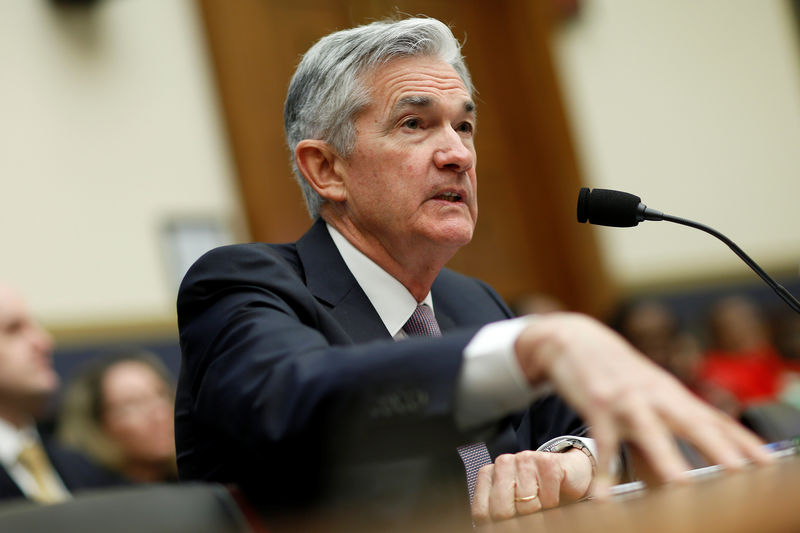
Investing.com -- Federal Reserve members on Tuesday downplayed expectations that era of rate hikes has ended, setting the stage for Fed chairman Jerome Powell to potentially deliver a hawkish push back against the recent easing in financial conditions.
Rate hikes remain on table
Federal Reserve Governor Michelle Bowman was among a slew of Fed members on Tuesday to remind market participants that bets on the Fed not lifting rates again were premature.
"I remain willing to support raising the federal funds rate at a future meeting should the incoming data indicate that progress on inflation has stalled or is insufficient to bring inflation to 2% in a timely way," Bowman said Tuesday.
Federal Reserve Bank of Chicago President Austan Goolsbee, meanwhile, acknowledged the recent progress on inflation, but said in an interview with CNBC on Tuesday that getting inflation down was" the No. 1 thing."
Treasury yields, financial conditions ease
The slew of remarks revived some investor attention on the prospect of a further rate hike, but with many still holding onto bets that the Fed hiking cycle is over, Treasury yields struggled to shake off their blues following the Fed's decision to keep rates unchanged last week as well as Powell's dovish press conference on Nov.1.
"Powell was dovish – downplaying recent strong U.S. data. This suggests that the bar for further hikes is quite high – and thus it is likely the end of the rate hikes, in our view," Nomura said in a note, ahead of remarks from the Fed chairman on Wednesday and Thursday.
The prospect of rate hike at the December and January meetings are slum at 10% and 15% respectively, according to Investing.com's Fed Rate Monitor Tool.
Will Powell pushback?
The overarching message from Fed speakers on whether higher Treasury yields will help them in their mission to curb inflation was to underscore that 'the why' rates have moved higher.
If higher Treasury yields are mostly tied to expectations of what the Fed will do next, then this isn't likely to filter into the Fed's thinking on future policy.
"The rise in longer-term rates that have moved up, can't simply be a reflection of expected policy moves from us," Powell said on Nov. 1. "if we didn't follow through on them, then the rates would come back down," he added.
Yet this appears to be scenario that is playing out. Chair Powell's dovish ‘careful’ act is "leading to lower US bond yields, thus reducing market concerns of a hard landing in the future," Nomura said.
The yield on 10-year Treasury fell 9 basis point to 4.569%, slipping further away from 5.021% cycle high seen last month, while the yield on the 10-year Treasury fell 10 basis point to 4.727%.
The somewhat hawkish push back from Fed members this week comes as some fear that the loosening in financial conditions, if sustained, could muddy the Fed's job to bring inflation down to target.
Powell, however, will have opportunity, if he wishes, to "clarify anything that he said this past week when his remarks prompted an easing of financial conditions, then this would be an opportunity to do so," Scotiabank Economics said in a Tuesday note.
Powell is set to deliver opening remarks before the Federal Reserve Division of Research and Statistics Centennial Conference at 9:15 ET on Wednesday and will participate in a panel discussion at 2pm on Thursday.

By Abhirup Roy and Akash Sriram
(Reuters) -Rivian Automotive raised its production forecast for the full year by 2,000 vehicles to 54,000 units on the back of sustained demand for its trucks and SUVs on Tuesday, sending its shares up 4% in volatile after-hours trading.
Rivian (NASDAQ:RIVN)'s upbeat forecast is a small positive for an industry reeling from the double whammy of high inflation that has dulled buyer appetite and price cuts at market leader Tesla (NASDAQ:TSLA) to stimulate demand.
Last month, Tesla CEO Elon Musk said he was concerned about the impact of high interest rates on car buyers, echoing caution from General Motors (NYSE:GM) and Ford (NYSE:F) amid fears of a slowdown in demand.
Smaller rival Lucid (NASDAQ:LCID) cut its production forecast on Tuesday "to prudently align with deliveries," sending its shares down 4%. It now expects to produce 8,000–8,500 vehicles this year, down from an earlier projection of more than 10,000.
"I'm actually surprised to be honest at how much we've seen others pull back," Rivian Chief Executive RJ Scaringe said in an interview with Reuters. "I think it's going to create, unfortunately, somewhat of a vacuum of products in the market."
He said that "shifts in buying behavior beyond the tail end of 2023" were not influencing Rivian's investment strategy for cheaper R2 vehicles that the company expects to launch in 2026.
After multiple quarters of supply chain problems, Rivian may be starting to turn a corner, some analysts have said. But the company shocked investors with an earlier-than-expected bond issuance last month that sent shares crashing.
On Tuesday, it trimmed its capital expenses and loss forecasts for the year. The company was cutting costs through negotiations with suppliers and updates to components and systems, Scaringe said.
Rivian will also stop production for a week this quarter to update its assembly line - which Scaringe said partly kept him from raising the annual production outlook even more - ahead of a bigger shutdown next year.
"Rivian showed resilience," said Alec Lucas, analyst at Global X. "Rivian appears to be benefiting from a more favorable commodity pricing environment, order book realization and progress toward scale."
He said Lucid's 2023 results "were reflective of efforts to scale production as well as an ongoing restructuring initiative."
Car prices at both Lucid, which is backed by Saudi Arabia's Public Investment Fund, and Amazon (NASDAQ:AMZN).com-backed Rivian start at more than $70,000. That is similar to Tesla's Model S luxury sedan, but much higher than the cheapest Tesla model at around $38,000.
Rivian has stayed away from cutting prices and has instead taken to making its Enduro powertrains in-house to reduce dependency on suppliers and slash costs.
The company previously said sales of its higher-priced SUVs have been strongly outpacing sales of its pickup truck R1T, improving the average selling price of its vehicles.
Last month, it reported third-quarter deliveries above market expectations.
Rivian also said on Tuesday it will end its exclusivity deal to largest shareholder Amazon for its electric delivery van, opening the door for more customers around the world, but reiterated its commitment to fulfilling the order of 100,000 vans to Amazon by 2030.
Rivian said was speaking with other customers that are interested in the Rivian Commercial Vehicle platform, which underpins its electric delivery vans, but declined to reveal any names.
Rivian's third-quarter revenue of $1.34 billion was largely in line with Wall Street estimates, while its quarterly loss narrowed from a year earlier.
Cash as of end-September was $7.94 billion, down from $9.26 billion three months prior.
Lucid's quarterly losses narrowed as well, but its revenue fell short of estimates. Production fell nearly 30% to 1,550 vehicles.

